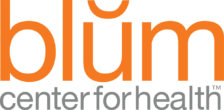 The following Brassica, or cruciferous, vegetables contain isothiocyanates and, as Dr. Blum suggested, when eaten RAW and in LARGE amounts, may interfere with your thyroid function, especially if your diet is low in iodine.
The following Brassica, or cruciferous, vegetables contain isothiocyanates and, as Dr. Blum suggested, when eaten RAW and in LARGE amounts, may interfere with your thyroid function, especially if your diet is low in iodine.
To be sure you are getting enough iodine to counteract this effect, I suggest taking a multi-mineral or, alternatively, increase your intake of foods rich in iodine like iodized sea salt, seaweed (kelp, nori, dulse, kombu), saltwater fish, and shellfish. Sprinkling kelp, dulse or nori flakes on your food, or adding a strip of kombu when cooking soups, stews, beans, pasta, rice or quinoa will also provide iodine. Remove the kombu when finished cooking and the minerals will remain in the food.
|
* Arugula
|
* Bok choy
|
* Broccoflower
|
* Broccoli |
| * Broccoli rabe | * Broccoli * sprouts | * Brussels sprouts | * Cabbage |
| * Cauliflower | * Collard greens | * Kale | * Kohlrabi |
| * Mustard greens | * Napa Cabbage | * Radish | * Swiss chard |
| * Turnip |
* Watercress
|
You can also do a juice or food/juice cleanse for several days, and not worry about hurting your thyroid. The minerals and antioxidants in the foods and drinks will offset this, and you should continue to take a multi-mineral while you do this. After the cleanse, go back to your iodine-rich diet with limited use of the raw foods (not every meal) for your daily routine.
Remember, we are talking about LARGE amounts of RAW cruciferous vegetables! When you lightly steam these foods, the issue goes away. Isothiocyanates are very important for detoxification and elimination of carcinogens, therefore, we still recommend eating at least one cup of cruciferous vegetables daily, whether cooked or raw.
